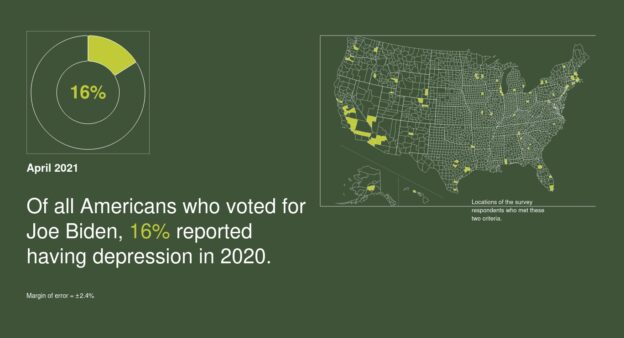- Facebook126
- Twitter1
- Total 127
My dog knows many things about me, like whether I’m about to take him out for a walk and even what I mean when I say the words “dog park.” He has questions about me–for instance, when will I come home?–and sometimes gets answers. These are his “known unknowns.” He can let me know he has questions by cocking his head.
There are also some things he doesn’t know that he isn’t even aware of not knowing. For example, he’s allowed to run off-leash in the park because the city of Cambridge, Massachusetts has licensed him as a resident pet. That status is designated by the tag under his neck. He knows a lot about the park, and he’s aware of the tag (at least when it’s being put on him for the first time), but there’s no path to his understanding that a city is a political jurisdiction that derives power from the state to grant and withhold rights to dogs, which is why he’s running around in the grass.
To use the vocabulary pioneered by Jakob von Uexküll–which has been influential in very disparate intellectual traditions–my dog has an “umwelt,” a model of his world that is shaped, or perhaps “enacted,” by his biophysical characteristics (such as his sensitive nose and inability to speak) and their interactions with the objects he encounters (Varela, Thompson & Rosch 1991). I have a different umwelt, even though the two of us may be walking together through the same space at the same time. For me, we are in a city park, because I use words and concepts about social organization. For Luca, we are in a field luxuriously supplied with interestingly stinky smells and other dogs.
I know many things about Luca, such as his preference for the park over regular city streets. I know that his sense of smell is at least 10,000 times more acute than mine, and I can infer that he is much more interested than I am in the scents around the perimeter of the dog park because he derives far more information from them than I could. I could learn more about what specifically he smells there and even which chemical compounds are involved.
Some would say that I will never feel what it’s like to smell as well as he does. Others would reply that anything true about what he senses could be captured in my language and tested empirically by human beings, and it’s empty to say that we cannot know what he experiences.
I might have “unknown unknowns” about my dog. They could be unknown from my particular historical position, in the same way that people hundreds of year ago didn’t know to wonder about mammals’ neural networks. Or they could be permanently unknown to homo sapiens because we have a different experience from a dog’s and we don’t even know what to ask.
One view of that last statement is that it’s false, because dogs and people are highly similar. But what would we say about bats (Nagel 1974), or extraterrestrials with far bigger brains than ours? Maybe we miss aspects of their world, much as Luca misses the legal significance of the tag on his collar.
Another view is that talking about permanently unknown-unknowns is empty, or even nonsense. But nonsense is not necessarily bad for one’s character and state of mind. We might ask whether it is wise or foolish to reflect on the abstract possibility of thought beyond our capacity to think. A classic text for that discussion is the Preface to Wittgenstein’s Tractatus, where he says:
The book will, therefore, draw a limit to thinking, or rather—not to thinking, but to the expression of thoughts; for, in order to draw a limit to thinking we should have to be able to think both sides of this limit (we should therefore have to be able to think what cannot be thought).
The limit can, therefore, only be drawn in language and what lies on the other side of the limit will be simply nonsense.
Wittgenstein does not attempt to write about what lies beyond the limit because he does not write nonsense. But I think it remains debated whether he advises us to reflect on the limit “from both sides.” One way to do that would be to grasp and truly feel that we inhabit an umwelt that is not the same as the world in-itself–in other words, that there are things beyond our ken.
On one hand, I am a little suspicious of intimations about the actual nature of what lies beyond the line. I suspect that those vague ideas are generated by our very human hopes and fears and don’t represent signals from beyond our umwelt. On the other hand, I find it consoling that there is a limit to the field in which our sense can run (even with technical assistance), and that there must be much beyond it–just as a whole city begins outside the fence of our park.
This aphorism by Dogen (who lived 1200-1253 CE) suggests a similar idea:
Birth is just like riding in a boat. You raise the sails and you steer. Although you maneuver the sail and the pole, the boat gives you a ride, and without the boat you couldn’t ride. But you ride in the boat, and your riding makes the boat what it is. Investigate a moment such as this. At just such a moment, there is nothing but the world of the boat. The sky, the water, and the shore are all the boat’s world, which is not the same as a world that is not the boat’s. Thus you make birth what it is; you make birth your birth. When you ride in a boat, your body, mind, and environs together are the undivided activity of the boat. The entire earth and the entire sky are both the undivided activity of the boat. Thus birth is nothing but you; you are nothing but birth (p. 115).
References: Varela, Francisco J., Evan Thompson, and Eleanor Rosch. The embodied mind, revised edition: Cognitive science and human experience. MIT press, 2017; Nagel, Thomas. “What is it like to be a bat?” The Philosophical Review 83 (1974): 435-50; Wittgenstein, Ludwig, Tractatus Logico-Philosophicus, English trans. (London, 1922); The Essential Dogen: Writings of the Great Zen Master edited by Kazuaki Tanahashi and Peter Levitt, Shambhala 2013. See also: joys and limitations of phenomenology; let’s go for a walk

